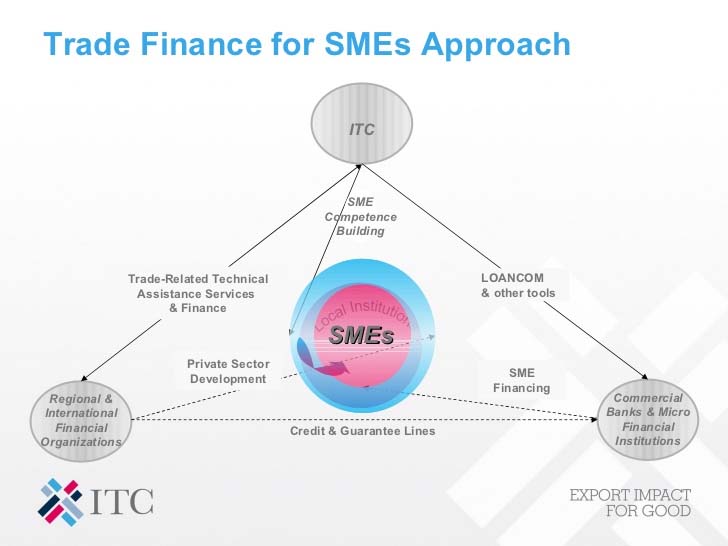
Md Muslim Reza
When we start talking about Small and Medium Enterprise (SME) in Bangladesh, we must proceed with two things in our mind that SMEs are accounted for a greater portion of total business in the country and it has been playing the lead role in creating entrepreneurships.
As the large business urges for huge amount of capital and very professional touch in management to sustain, SME formation and operation is much easier but that is not the only cause why SME business are ruling over in number of businesses.
Academicians frequently state that the characteristics of an economic environment often describe the characteristics of the SME business of that environment. While export industries of Bangladesh are mostly in possession of large corporations, the SMEs are mostly niche and need based business concerned to meet the local customer demand. But this identical orientation about large corporations and SMEs of Bangladesh is changing in this globalised world as every business, regardless its size, wants to reach maximum customer and retain maximum revenue from market which makes large corporations to target the local market segment as well as drives SMEs to involve in export-import.
From this mixed up scenario, where everyone is everywhere to do business in every segment, the question arises, how the SMEs could sustain and compete along with the large corporations? The answer lies in two factors of competitiveness, firstly, Innovation and secondly, again the globalisation.
Large corporations’ competitiveness relies mostly on cost effectiveness, efficiency and in promotion, which were thought to be hard for SMEs to achieve. SMEs could make abnormal profit in the start-up time. This is the first part called ‘Innovation.’
SMEs of Bangladesh are now highly encouraged by various financial instigations from both government and private financial sectors. But when the competitiveness is related innovation, then necessity for technical education also comes through and beside this, strong protection for Intellectual Property (IP) rights should be given priority. Need based innovation is actually a cycle through which a technological advancement is experienced by the people. But in advancing or LDC countries like Bangladesh, IP right protection is weaker than that of the developed countries. Innovations here are copied frequently and thus the product life becomes very short because of unfair growth of competition, which is a very hard constraint to become sustainable.
IP and Geographical Identification rights protection is going to be very crucial for the competitiveness of SMES against the large corporation in culture oriented countries like Bangladesh, where SME start-up are mostly related to traditional, cultural and geographically exclusive products and the services are also influenced by culture and tradition.
Ultimately, it went up to the government taking right step not only for growing the SMEs in number, but also to support them to sustain in the changing business, changing Bangladesh.
When we start talking about Small and Medium Enterprise (SME) in Bangladesh, we must proceed with two things in our mind that SMEs are accounted for a greater portion of total business in the country and it has been playing the lead role in creating entrepreneurships.
As the large business urges for huge amount of capital and very professional touch in management to sustain, SME formation and operation is much easier but that is not the only cause why SME business are ruling over in number of businesses.
Academicians frequently state that the characteristics of an economic environment often describe the characteristics of the SME business of that environment. While export industries of Bangladesh are mostly in possession of large corporations, the SMEs are mostly niche and need based business concerned to meet the local customer demand. But this identical orientation about large corporations and SMEs of Bangladesh is changing in this globalised world as every business, regardless its size, wants to reach maximum customer and retain maximum revenue from market which makes large corporations to target the local market segment as well as drives SMEs to involve in export-import.
From this mixed up scenario, where everyone is everywhere to do business in every segment, the question arises, how the SMEs could sustain and compete along with the large corporations? The answer lies in two factors of competitiveness, firstly, Innovation and secondly, again the globalisation.
Large corporations’ competitiveness relies mostly on cost effectiveness, efficiency and in promotion, which were thought to be hard for SMEs to achieve. SMEs could make abnormal profit in the start-up time. This is the first part called ‘Innovation.’
SMEs of Bangladesh are now highly encouraged by various financial instigations from both government and private financial sectors. But when the competitiveness is related innovation, then necessity for technical education also comes through and beside this, strong protection for Intellectual Property (IP) rights should be given priority. Need based innovation is actually a cycle through which a technological advancement is experienced by the people. But in advancing or LDC countries like Bangladesh, IP right protection is weaker than that of the developed countries. Innovations here are copied frequently and thus the product life becomes very short because of unfair growth of competition, which is a very hard constraint to become sustainable.
IP and Geographical Identification rights protection is going to be very crucial for the competitiveness of SMES against the large corporation in culture oriented countries like Bangladesh, where SME start-up are mostly related to traditional, cultural and geographically exclusive products and the services are also influenced by culture and tradition.
Ultimately, it went up to the government taking right step not only for growing the SMEs in number, but also to support them to sustain in the changing business, changing Bangladesh.

